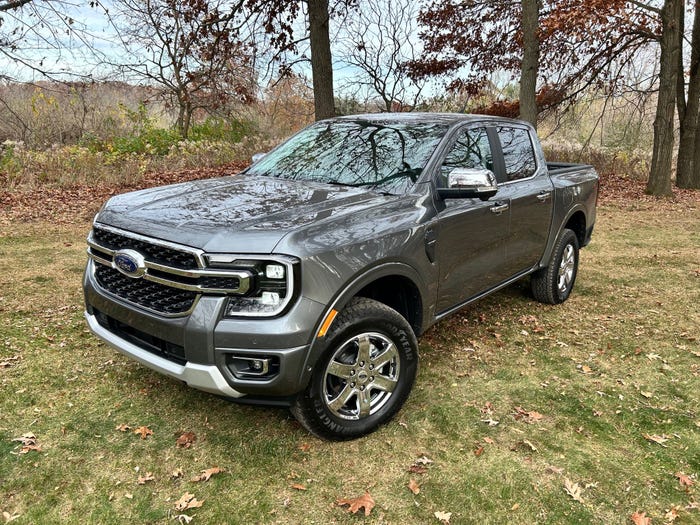Ford Looks to Add Technologies to EcoBoost Engines
Ethanol, or other alcohol-based fuels, potentially could be used in different ways, Dan Kapp says, noting the high-energy density of the fuel is a good fit for boosted engines.


Special Coverage
 SAE World Congress
SAE World Congress

DETROIT – Ford Motor Co. is studying a suite of technologies that potentially could be added to its line of direct-injected turbocharged EcoBoost engines to improve efficiency and allow for further downsizing, a top company engineer says.
The auto maker’s EcoBoost strategy is based on downsizing engine sizes without sacrificing performance. But as engine displacement becomes smaller, there is increased potential for engine knock, a problem typically associated with boosted mills.
Ford is working on technologies that could mitigate the problem, says Dan Kapp, Ford Motor Co.’s director-powertrain research and advanced engineering.
“Technologies that enable (reduced knock) are cooled exhaust-gas recirculation and ethanol fuels,” Kapp tells Ward’s at the SAE World Congress here. “Even further out in the future, we’re talking about research work in the realm of extreme dilute combustion.”
The addition of EGR is expected to boost fuel economy in EcoBoost engines 5% and reduce the tendency for an engine to knock as it lowers the combustion temperature, Ford says.
“EGR also has the additional benefit of improving the engine’s efficiency as well, so it can enable further downsizing,” Kapp says.
Ethanol, or other alcohol-based fuels, potentially could be used in different ways, he says, noting the high-energy density of the fuel is a good fit for boosted engines. One of the scenarios Ford is looking at is dual-fuel, where alcohol is used to mitigate knock.

Dan Kapp, Ford powertrain director, says EcoBoost better value proposition than diesels.
“We know alcohol fuels will play a role going forward, but what’s not clear is will that be in the form of E85 or different blend levels? These are future developments in the research realm and just one of an array of things that will help us with the knock inherent with these boosted engines,” Kapp says.
Ford also is considering adopting the Miller cycle for its EcoBoost engines, which employs variable valve timing that affects the closing of the intake valves during the compression stroke to ease the work the engine has to do against itself, commonly known as pumping losses, he says.
The auto maker has confirmed EGR will find its way into the next-generation of EcoBoost mills, but is mum on the other technologies. Ford has not yet said when the next-generation EcoBoost engines will debut, but sources tell Ward’s to expect them by 2015.
Kapp admits adding technologies will increase costs. But he argues that as fuel prices continue to rise and new federal mandated fuel regulations loom, Ford’s strategy is the right one.
“All of these things add more costs and challenges,” he says. “But you look at that value against a fuel economy target and recognize those targets (are going to) continue to get more and more stringent,” he says.
“If there is a better value solution, we’ll use it. But we think this could be a natural evolution of what spark-ignition engines can get to.”
EcoBoost technology may never be as efficient as diesel mills, but the gap is closing, Kapp says, noting diesels always will be more expensive than internal-combustion engines.
Ford’s current-generation EcoBoost engines, which currently come in displacements of 2.0L and 3.5L, already share many attributes of diesels, including a high-pressure, direct-injection system, pistons with optimized bowls to improve combustion efficiency and oil-cooled pistons that reduce in-cylinder temperatures.
But “the base engine costs are higher because of the much higher loads,” Kapp says. “The boosting systems are much more sophisticated. They need to be with diesel engines for emissions reasons.”
About the Author
You May Also Like





